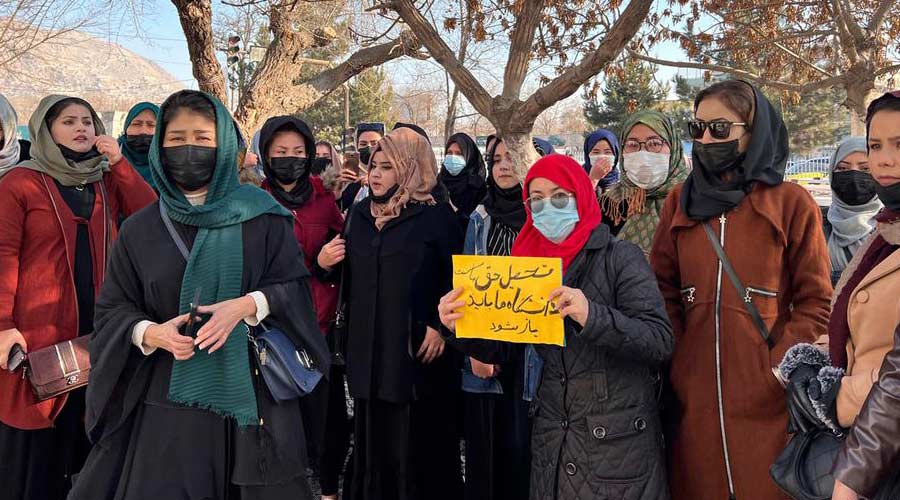The Taliban on Saturday ordered all nongovernmental organizations to suspend their female employees in the latest curbs on women's rights in Afghanistan.
The announcement came just days after the Islamist militant group banned women from studying at universities — a move that sparked protests and international outrage.
What is the latest Taliban ruling?
Economy Ministry spokesperson Abdulrahman Habib said the female NGO employees were not allowed to work until further notice because some had not adhered to the Taliban's strict interpretation of the Islamic dress code for women.
"There have been serious complaints regarding the non-observance of the Islamic hijab and other rules and regulations pertaining to the work of females in national and international organizations," said a letter sent to all NGOs.
The letter warned that any NGO found not complying with the order would have its operating license revoked.
It was not immediately clear how the order would affect UN agencies, which have a large presence in Afghanistan, delivering services amid the country's humanitarian crisis.
Habib said the letter applied to groups listed under ACBAR, the country's coordinating body for humanitarian organizations.
That body does not include the United Nations. However, it includes over 180 local and international NGOs and the UN often contracts with NGOs registered in Afghanistan to carry out its humanitarian work.
Women's protest quashed with water cannon
The news of the ban came as dozens of Afghan girls and women, mainly students, took to the streets in western Herat on Saturday to protest the Taliban's earlier ban on women's education.
Protesters, divided into small groups, chanted: "Education's our right" and gathered in front of the provincial governor's office.
Security forces tried to disperse them, using water cannons, sticks and batons, according to reports.
Video footage showed the women hiding in a side street before resuming their protest with chants of "Disgraceful!"
Kabul residents reported a heavy Taliban presence in the city to suppress any possible protests in the capital.
Dozens of Afghan refugee students also protested in the Pakistani city of Quetta and demanded the immediate reopening of campuses for women in their homeland.
The Taliban also justified the education ban on the grounds that female students were not observing dress codes, and were attending classes without male relatives and mixing with male students.
Despite initially promising a more moderate rule respecting rights for women and minorities, the Taliban have ended up implementing their interpretation of Islamic law, or Shariah, since they seized power in August 2021.
They have banned girls from middle school and high school and barred women from most fields of employment and ordered them to wear head-to-toe clothing in public. Women are also banned from parks and gyms.










